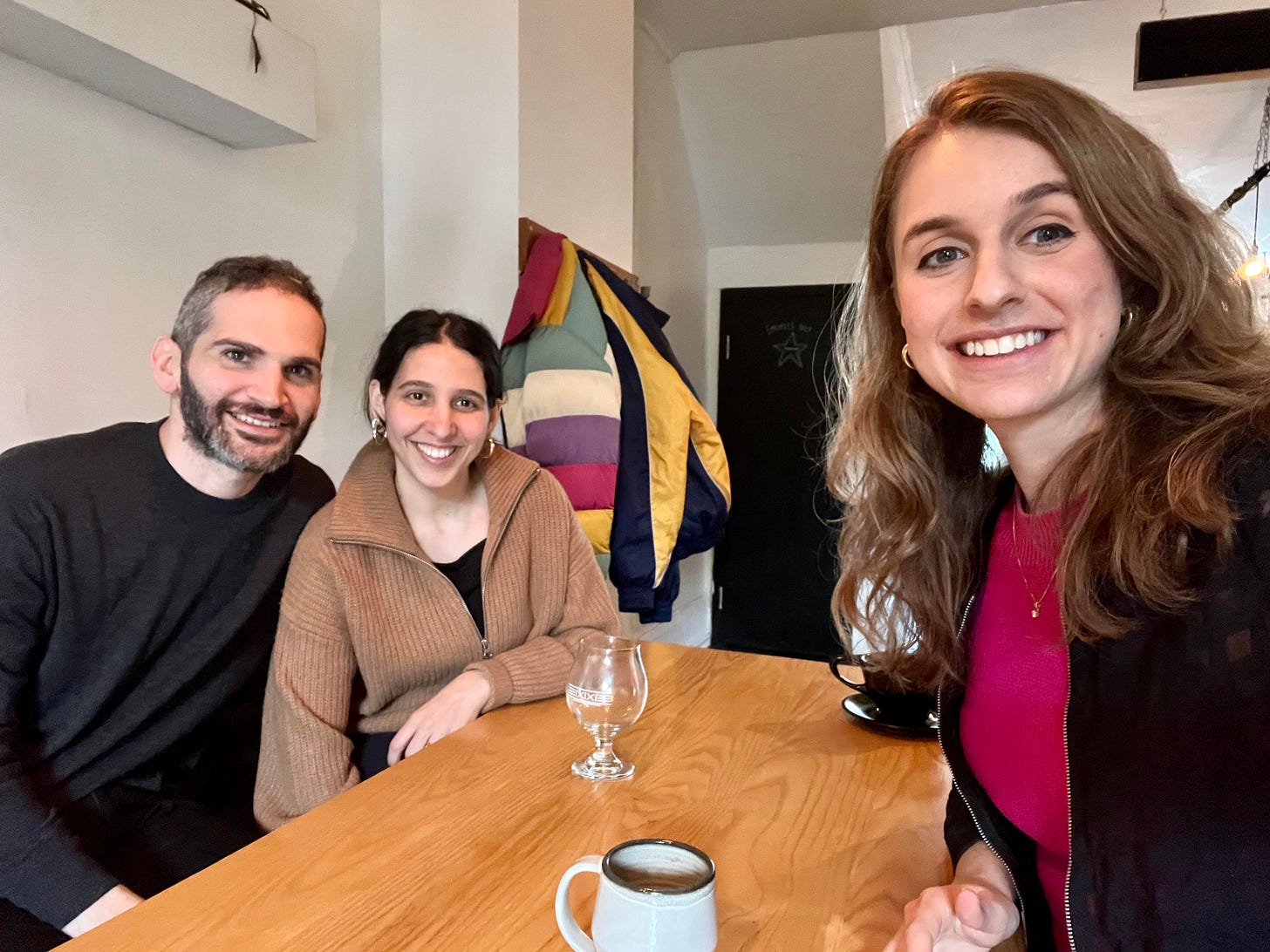Friend #32 & 33 - Roy and Ophir
My favorite dinner party hosts
Roy and Ophir are a rare breed. After my Toronto Star article was published, Roy spotted me through a mutual connection on LinkedIn.
Every month, the two of them host a dinner for cool people who they have recently met. At the end of March, I was one of those people, and joined by three others we were a table of six—dining and chatting over delicious Mediterranean food.
Roy and Ophir moved to Canada from Israel five years ago so that Ophir could complete her MBA. They were looking for a new adventure.
At dinner, Ophir pulled out a deck of cards with random answers written on each. “Should we move to Paris?” she asked the deck of cards. The answer was, “Of course.”
The couple met in Jerusalem when they were both undergraduate students. “One of our mutual friends ran a campaign about why I should meet Roy,” Ophir jokes.
The arrangement was a success. Today they are happily married and in 2016 had a glorious 80-day honeymoon across the United States and Canada that covered 23 states and two provinces.
It’s evident from all of our interactions that the two are friendly and almost more importantly that they value friendship. “I think I have 25 people who I can call and have an hour-long conversation with,” Roy says. Not that numbers matter.
A few weeks ago, the three of us met for coffee again at a mid-town Toronto café. As immigrants to Canada, the couple admits that it’s harder to build a larger network. Like someone who can share who the best dry cleaner is. Or a friend of a friend that may know someone who works at a certain company. Overall, they have been lucky.
“In Israel, people are less friendly upfront but once you get to know someone, the friendship is warmer than it is here,” says Ophir.
On a call with Pete, the founder of The Genwell Project, earlier this week. He shared that we entertain half as much at home as we did in the 1990s. Perhaps out of ego or fear and anxiety. Our lives are also filled with more distractions.
A new friend recently likened it to displacement theory which in the context of friendship means that instead of putting our time and effort into the relationships in front of us, we are concentrated on those with people who may live further away or online relationships that are often less fulfilling than the ones we have in person.
I admit to the couple that one of my regrets is not moving away for university. I look back at the missed opportunities I had to spend more time with friends and be exposed to different ideas that living independently could have offered. “My parents really encouraged me to move away and I’m glad they did,” says Ophir. A wise decision given she met Roy.
“What were the results of your friendship survey?” asks Roy.
A few months ago, I put out a survey asking people how they make friends. My greatest learning is that about 45% of the respondents are looking for close friends and opportunities to strengthen their relationships with their close friends. Close friends are the three to five friends we spend most of our time with.
Roy and Ophir are planning on hosting a gathering later this year that allows the people they have met through their various dinner parties to meet one another. A fabulous idea and an opportunity to strengthen relationships.
“Tell me every terrible thing you ever did and let me love you anyway.”
―Edgar Allan Poe
Internet Browsing


